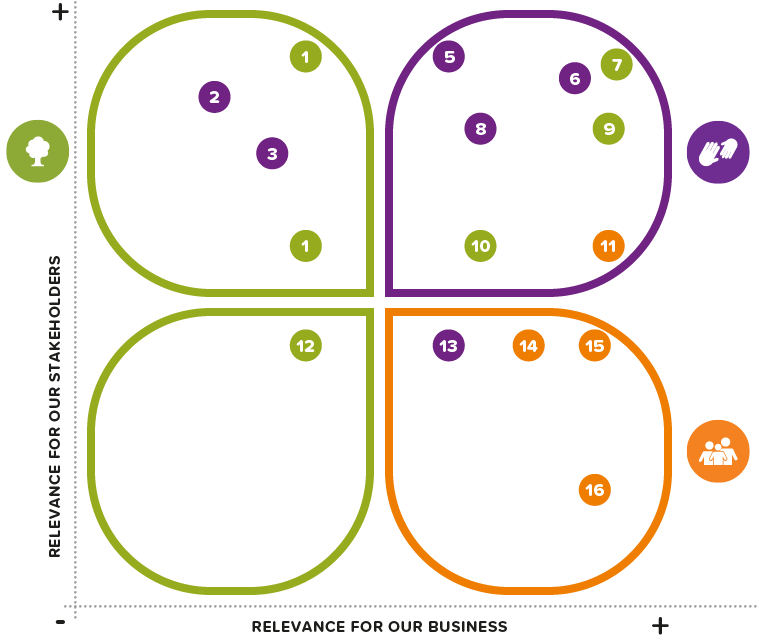

Materiality Study
In 2012, we carried out a materiality analysis, identifying best practices globally, interviewing key executives, dialogues with representatives of external stakeholders executives, sustainability experts and employees. Through this exercise we identified the material issues that impact our business.
The material issues for our business include the following:

Strategic Sustainability Framework
The Sustainability Strategy provides us with the guidelines to achieve our mission to positively transform the communities where we operate, supported by our Ethics and Values.
Based on the above, the most important strategic issues for both the company and the stakeholders are:

Our 2020 Goals for each pillar of the Sustainability Strategy
guide us to measure our progress.

Our Community

Our Planet

Our People

Our Community

Our Planet

Our People
We are committed to contribute to the United Nations Sustainable Development Goals. Many of our initiatives contribute to the 17 objectives with specific actions, however, we are convinced that through our strategic framework and initiatives we can have a larger impact in the following nine.






“In line with our sustainability strategy, we contribute to the United Nations Sustainable Development Goals.”




“In line with our sustainability strategy, we contribute to the United Nations Sustainable Development Goals.”
